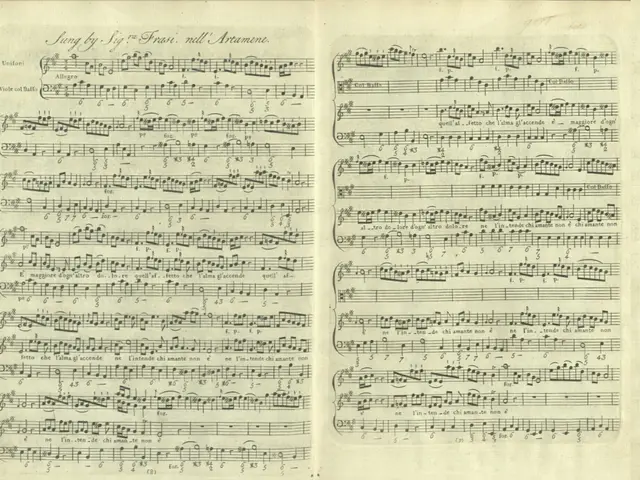Thousands in Bavaria Recognized as War Victims, Receiving Compensation
Monetary reimbursement or equivalent payment made to an individual or entity for losses, damages, or other liabilities incurred. This can also refer to rewards given for services rendered, performances, or achievements. - Compensation awarded to 3,100 individuals due to war conflicts.
In the heart of Germany, Bavaria has come forward to provide care services and compensation to over 3,100 individuals impacted by the devastating consequences of war. This includes those who have been physically or mentally affected, directly or indirectly, by war events such as undetected or unexploded ordinances like mines, grenades, or bombs.
The Center for Family and Social Affairs (ZBFS) in Bayreuth has announced that these services extend to not only the survivors of world wars, be they former soldiers or relatives of war victims, but also to those whose health has been impaired due to war’s aftermath.
As we commemorate the 80th anniversary of the liberation from National Socialism and the end of World War II in Europe on May 8, it’s worth noting that the oldest victim in Bavaria is 105 years old, the oldest orphan is 97, and the oldest widow is 108 - these being the oldest care cases in the region according to Norbert Kollmer, President of ZBFS.
In 2024, the state authority disbursed a total of 34.2 million euros in compensation under the Fourteenth Social Code, catering to former war victims' needs.
Bavaria, Bayreuth, and Compensation
While current updates on war victim compensation in Bavaria aren't extensive, we can gain insight into historical efforts. Post-war initiatives in Germany, including Bavaria, worked to support victims of Nazi persecution, such as concentration camp survivors, forced laborers, and displaced persons. Philipp Auerbach, for instance, significantly contributed to advocating for such groups in the immediate aftermath of the war [1].
Germany has established various compensation programs for victims of Nazi persecution, including restitution payments for property seized during the war and other forms of compensation for suffering and loss [1][4]. Eligible groups also encompass post-war displaced persons (DPs), with programs evolving to assist aging survivors and their families.
Compensation amounts have varied significantly, depending on individual claims and the specific program under which they’re made. For the most updated and precise information on the current compensation status in Bavaria, it's suggested to consult German government agencies or organizations specializing in war victim compensation.
- The Center for Family and Social Affairs (ZBFS) in Bayreuth, Bavaria, is providing care services and compensation to over 3,100 individuals who have been affected by the consequences of war, including survivors of world wars, former soldiers, relatives of war victims, and those impaired by the war's aftermath.
- In 2024, the state authority in Bavaria disbursed a total of 34.2 million euros in compensation under the Fourteenth Social Code, catering to the needs of former war victims.
- Post-war initiatives in Germany, including Bavaria, have historically worked to support victims of Nazi persecution, such as concentration camp survivors, forced laborers, and displaced persons.
- To obtain the most updated and precise information on the current compensation status in Bavaria, it is suggested to consult German government agencies or organizations specializing in war victim compensation.








